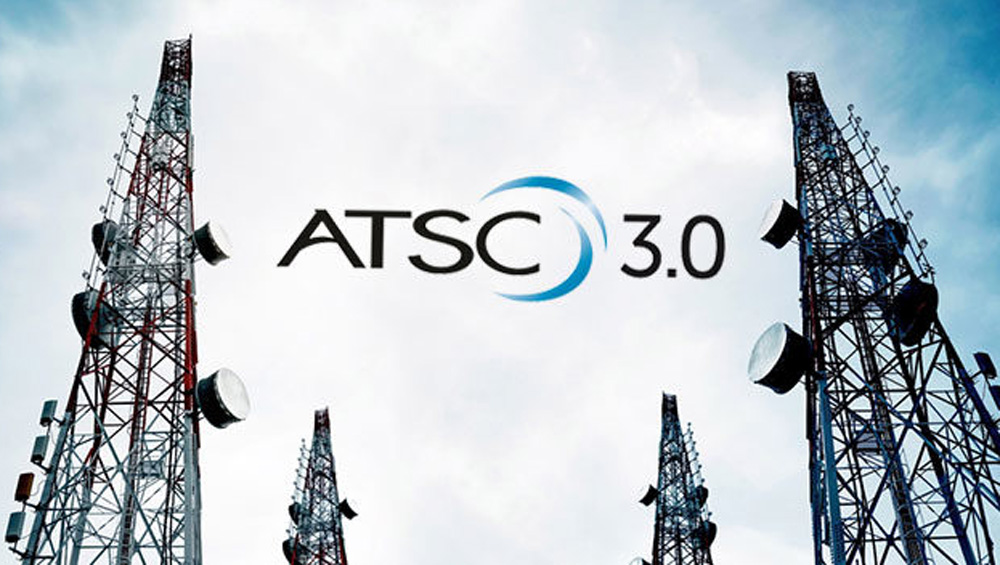
ITU Adopts ATSC 3.0 As Worldwide Standard

The Advanced Television Systems Committee (ATSC) today said it “welcomed news that the International Telecommunications Union (ITU) has adopted ATSC 3.0 as a recommended digital broadcast standard, paving the way for countries around the world to evaluate and use the IP-based digital broadcast standard, the first of its kind in the world.”
Developed by hundreds of industry experts who sought to create a state-of-the-art broadcast system based on the same internet protocol language used by over-the-top services, ATSC 3.0 “greatly expands flexibility and adaptability for broadcasters, allowing them to transmit data that will both enhance TV broadcasts and provide new revenue opportunities,” the group said. It added: “ATSC 3.0 is designed to deliver everything from 4K Ultra HD to robust mobile signals, enabling new business models and giving consumers a better experience.”
“With initial U.S. deployments in place, we’re anticipating the first announcements of consumer receivers for the U.S. market in the coming days,” said ATSC Board Chairman Lynn Claudy, SVP of technology for the National Association of Broadcasters. “The decision by the ITU is yet another signal that digital terrestrial broadcasting has a bright future ahead.”
The next step is to update the ITU Digital Handbook with best practices for implementation of ATSC 3.0. And ATSC members are poised to continue supporting international standards efforts, including through the new ATSC Planning Team 6 on Global Recognition of ATSC 3.0.
Madeleine Noland, president of ATSC, said: “ATSC appreciates the efforts of the U.S. Delegation to the ITU, led by the U.S. FCC, and we congratulate the ITU on its careful review and decision to include ATSC 3.0 as an official ITU standard. The system is currently commercially deployed in South Korea where audiences have been enjoying high-quality Ultra HD video and next generation audio from ATSC 3.0 broadcasts since 2017. U.S. commercial deployment begins in earnest this year.
“I am very proud of our international progress, and would like to thank ATSC members Sinclair Broadcast Group, ONE Media 3.0, and ETRI (South Korea’s Electronics and Telecommunications Research Institute) for their leadership role in the ITU process,” Noland added. “ATSC is an international organization with members hailing from across the globe.
This milestone achievement is testament to the spirit of international collaboration that our members infused into the standard at every level.”
Sinclair Broadcast Group and its ONE Media 3.0 also applauded news.
“We’re delighted that the nations of the world have approved use of this extraordinary new standard,” said Christopher Ripley, Sinclair president-CEO. “The Next Gen transmission standard will provide consumers with a host of new services and expand opportunities for broadcasters and service providers around the world. By integrating broadcast and broadband services, ATSC 3.0 also can be part of the 5G transmission ecosystem for non-television data transmission services,” he added.
The IP-based standard, incorporates new capabilities to:
- Enhance quality for audio and video services.
- Provide robust mobile reception on a wide range of devices.
- Improve spectrum efficiency.
- Provide resilient advanced emergency information.
- Personalize features and services.
- Furnish interactive services.
Ripley added: “We congratulate both the U.S. Delegation led by the FCC and the ITU’s Working Parties and Study Group for their foresight and keen acknowledgement of the need for broadcast innovation. The ITU Staff and contributing administrations have done an excellent and thorough analysis, and we appreciate their great efforts to think through ramifications and permit the market to flourish with minimal constraints.”
Next steps toward implementing the new standard involve updating the ITU-sanctioned Digital Handbook. This detailed set of implementation steps will enable countries worldwide to understand how ATSC 3.0 could enhance a move from analog to digital capabilities or upgrade existing digital services. Louis Libin, Sinclair’s VP for spectrum engineering and policy, chairs the ITU Rapporteur Group assigned to modify the Digital Handbook.
Libin noted: “Adoption of the ATSC 3.0 standard as an international sanctioned offering will provide extraordinary options to many countries and adds impetus to complete our work on providing those guidelines quickly.”
































Comments (0)